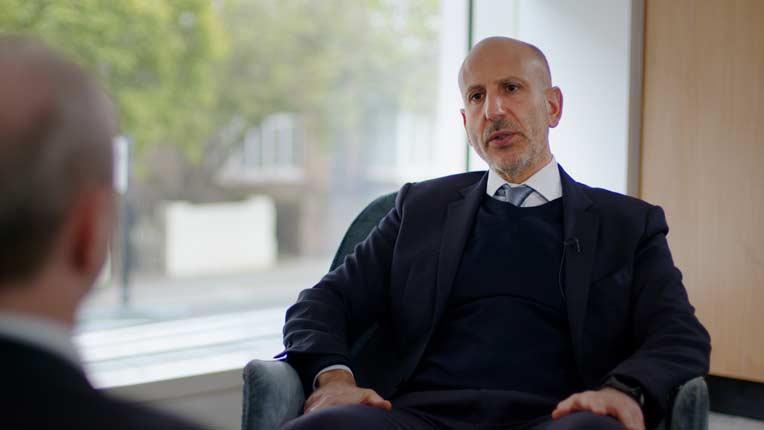
Just one of the 16 UK Direct Property investment funds rebates fees to investors if its cash holdings get too high - that's despite some property funds hoarding up to 30% of their assets in cash.
A Morningstar investigation can reveal that investors are paying charges of up 1.63% to invest in property funds when up to a third of their money is sitting in cash, not generating a return.
BMO UK Property is the only fund in the sector which refunds investors some of their money when its cash pile reaches a certain level.
Ben Yearsley, investment director at Shore Financial Planning, says: “It’s a disgrace. These funds are offering something that they are not delivering. It is plain wrong to charge investors the full annual fee on a fund when only 70% of their money is being invested.”
Sitting on Cash
Elevated cash levels in a property fund are typically a sign that managers are bracing themselves for investors to sell out of the fund. Indeed, the property sector has seen a steady trickle of outflows since 2016.
While some might say the strategy is a sensible one, others say it is unfair to charge investors a fee for active fund management when their money is sitting in cash.
Morningstar contacted all of the funds in the Investment Association UK Direct Property fund sector and just one - BMO UK Property - said it has a policy to rebate investors some of their fees if its cash levels get too high.
The fund introduced a rebate policy in August 2018 which kicks in when the fund's cash level reach 15% of its assets. At this point, it reduces its annual management charge by 65 basis points on the cash above this amount.
In the 17 months since the rebate policy was introduced, it has been applied in all but two months - December 2018 and September 2019.
Guy Glover, manager of the BMO fund, concedes that cash levels are “significant” at their current level of 24% of the portfolio. However, he disagrees that a large cash allocation can hinder performance, pointing out that costs (including stamp duty and agency fees) are generally higher for direct property investments than, say, equities, and having cash can help reduce costs that would otherwise be passed on to investors.
|
UK Direct Property |
Cash Levels |
YTD Return |
Ongoing Charges* |
|
Aberdeen UK Property |
10.96% |
-6.05% |
1.35% |
|
Aviva Investors UK Property Fund |
30.00% |
-6.77% |
1.02% |
|
BMO UK Property Fund |
24.00% |
-6.01% |
1.58% |
|
Janus Henderson UK Property |
23.79% |
2.00% |
0.84% |
|
Kames Property Income |
14.07% |
1.98% |
0.83% |
|
Legal & General UK Property |
28.24% |
2.96% |
0.75% |
|
M&G Property Portfolio |
10.94% |
-7.29% |
0.81% |
|
MGTS St Johns High Income |
13.54% |
3.00% |
1.21% |
|
Royal London Property |
7.04% |
-0.10% |
0.81% |
|
SLI UK Real Estate Fund |
23.52% |
-1.30% |
1.32% |
|
Threadneedle UK Property |
6.31% |
-0.21% |
1.63% |
|
TIME Commercial Long Income |
17.76% |
4.00% |
1.34% |
|
TIME Social Long Income |
10.88% |
3.81% |
1.54% |
|
VT Redlands Property Portfolio |
10.00% |
4.96% |
0.86% |
|
*Source: Morningstar Direct, data at December 4. Ongoing charges are for the oldest share class |
|||
Does Cash Affect Performance?
In our analysis, we have taken the ongoing charges for the oldest share classes available for each fund, rather than the clean share classes. These charges range from 0.75% to 1.63% across the sector. Some may also levy upfront charges for investors.
Across the UK Direct Property fund sector, cash levels are currently higher than average but not all funds have 20-30% in cash. Based on year to date returns, it does not appear that there is a direct correlation between cash levels and a fund's performance.
The £3 billion M&G Property Portfolio fund, for example, has an upper limit on the amount of the portfolio that can be in cash of 12.5%. It says this is because high cash levels are a drag on performance. Yet the fund is the weakest performer of the sector year to date, down 7.29%.
Janus Henderson UK Property held 23% of its assets in cash in October 2018 but this had fallen to 16.7% by October 2019. A spokesman said: “The cash held is itself actively managed, we put it to work to earn as much interest as possible.” The fund has returned 3% year to date.
No other fund groups wished to comment.
Of course, these funds are not breaking any rules. To meet the Investment Association criteria for the UK Direct Property sector, funds must invest an average of 70% of assets into property over a rolling five-year period.
Liquidity Concerns
Property Authorised Investment Funds (PAIFs) are open-ended funds that invest directly in commercial property - big buildings such as offices, shopping malls and apartment blocks. This means the sector is inherently less liquid than open-ended funds that invest in equities - stocks can be sold in moments, buildings can take years.
Concerns have been raised about the so-called "liquidity mismatch" of hold these illiquid holdings, which can take months to sell, in a fund structure that promises investors the ability to buy and sell on a daily basis.
The problems of this structure were seen in the immediate aftermath of the 2016 Brexit referendum when most open-ended property funds were forced to suspend trading.
It was feared that Brexit would cause the property market to crash and investors would flood out of these funds. Without enough cash to hand to meet a wave of investor redemptions, the funds gated temporarily - stopping investors buying or selling - to avoid being forced into a firesale of their assets.
It's a situation which is all too fresh in the minds of those who invested in the Woodford Equity Income fund - it, too, held hard-to-sell assets and was forced to suspend trading because it couldn't meet investor redemptions.
But Fund Expert’s head of research, Sam Lees, says investors should not get too hung up on cash and what managers do with it: “If fund managers want to compete on charges by rebating fees if cash hits certain levels then they are welcome to do that but our focus would always be on performance after charges."
But performance-wise, the sector has had a mediocre year – returns range from -7.29% (M&G Property) to 4.96% (VT Redlands). Meanwhile, the FTSE 100 has climbed 8%.
FCA Tighten Rules, But Not for Cash
The regulator is not concerned about cash holdings and has no plans to limit the size of the cash buffers held by funds. The regulator has previously pointed out that direct property fund managers have a tougher job than equity managers in appraising liquidity needs, which could necessitate holding more cash.
But this is one reason why many investors argue that open-ended funds are not a suitable vehicle in which to invest in inherently illiquid assets. Marcus Phayre-Mudge, manager of the 5-star rated TR Property investment trust (TRY), says the model is “intrinsically flawed”.
Indeed, from next year, the FCA will tighten up rules on how these funds are marketed and how liquidity is managed. A new category will be created, “funds investing in inherently illiquid assets’ (FIIA)”, that will ensure the regulator keeps a closer eye on the sector.
Yearsley adds: “I understand why property funds are holding so much cash, because they are worried about liquidity and investor redemptions. But if they are so concerned about managing liquidity, they really need to consider whether holding property in an open-ended fund structure is appropriate.”





























